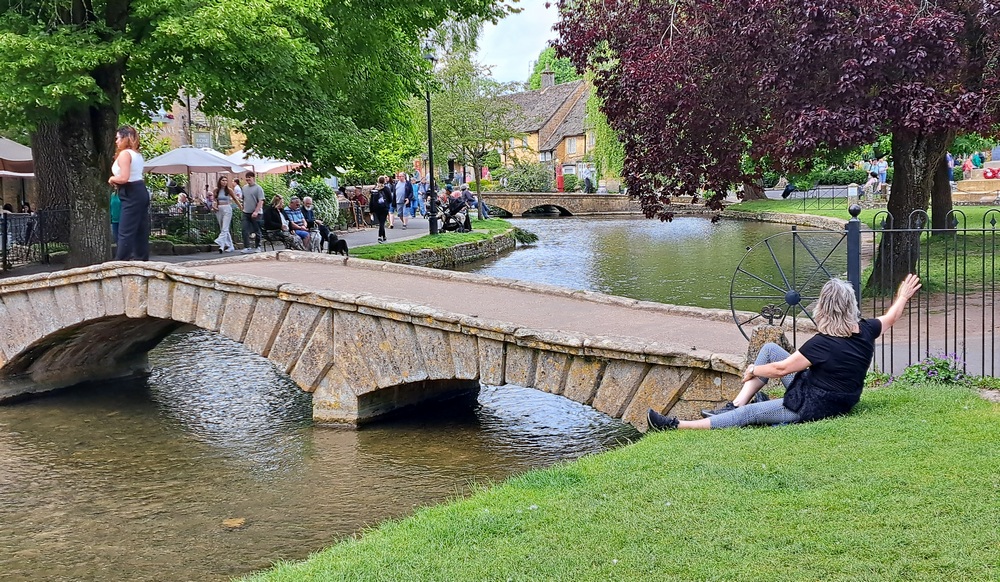JR51: Fifth Step: Keep Christmas, Toss Easter
A: So far we’ve talked about rescuing the soul, restoring the mystery of divine love, inviting our Mother to the table, and insisting on balance as four ways to help heal the church. What else do you have in that angelic bag of surprises you carry around?
J: The liturgical calendar of the Church must be changed.
A: You mean the calendar of religious events and themes and holy days that tells people what they’re supposed to be celebrating when.
J: Calendars are very important to the healthy functioning of the brain. So the Church still needs a calendar to help focus events for the year. I’m not recommending that the Church do away entirely with the idea of having a yearly cycle of events. Far from it. I’m suggesting that the Church revise the calendar and bring it into alignment with the needs of the soul.
A: What would that mean in practical terms?
J: It would mean you’d get to keep Christmas but you’d have to put Easter in the garbage bin.
A: Get rid of Easter? I can see the steam coming off the heads of conservative Christians already.
J: It would be kinder, in the eyes of many Christians, for me to suggest that Holy Week be “reformed” rather than axed altogether. But Holy Week is a celebration of Pauline Christianity at its worst. The overriding theme of Holy Week is salvation — escape — not healing or redemption. Every year it sends the wrong message to Christians. It sends the message that the focus of their relationship with God should be the Saviour — his death and resurrection and coming again. This was never the message I taught during my ministry as Jesus. Nor is the meaning of my time on the cross being properly taught and represented by the Church. There’s no way that Holy Week can be fixed. It would be the same as asking people to celebrate “the joy” of an S.S. death camp like Auschwitz. (I say this as facetiously as possible.) There is no joy to be found in the traditional teachings of Holy Week.
A: I’ve noticed a tendency among more liberal ministers to treat the “events” of Holy Week in a more symbolic way — to de-emphasize the crucifixion and instead emphasize the themes of renewal and rebirth and regrowth in the spring.
J: It’s very helpful and hopeful to talk about the themes of renewal and rebirth. I have no problem with that per se. I have a problem with a continuing effort among theologians to attach those themes to me. I am one man, one angel, one child of God. I’m not the Fisher King. I’m not Horus. I’m not the dead and rising Sol Invictus. I’m not the resurrected Christ. I’m just a stubborn s.o.b. who won’t shut up. I wasn’t even crucified in the springtime. I was crucified in the fall. The early church’s efforts to place the time of my crucifixion in the spring were largely centred on John’s writings. John had his own reasons for wanting to place the time of my crucifixion at Passover. But John wasn’t a man who cared about historicity or facts. He wrote what he wanted to write about me. It helped him sleep better at night.
A: A minute ago you mentioned joy as if it’s somehow significant or important to the healing of the church.
J: Joy is crucial to the experience of faith.
A: How do you define “joy”?
J: I use the word “joy” to express the gratitude and devotion and trust that all angels feel in their relationship with God the Mother and God the Father. I don’t use it as a synonym for worship or praise. I don’t use it as a synonym for the excitement of being part of a large crowd (which is more like hysteria). For me, joy is a word that conveys the happiness and deep contentment we feel as angels. It’s the feeling you get when you feel really, really grateful and really, really SAFE at the same time. It makes you smile from the inside out.
A: Christians have long believed that the purpose of angels is to offer praise and worship to God. Do angels worship God?
J: Noooooooo. You never see angels down on their knees with their heads bowed in humility. What you see is angels living their purpose of love in everything they do. As angels, we show our never-ending love and appreciation of our parents by choosing thoughts and words and actions that bring more love into Creation. We live in imitation of our parents’ courage. We’re not carbon copies of our divine mother and father — that is, we all have our own unique temperaments and personalities and talents and interests — but we’re all alike in that we all choose love. There are many different minds and many different bodies in Creation, but it can be said in all truthfulness that there’s only One Heart. It’s the feeling of joy that comes from our choice to share One Heart that makes us feel like a big family. We all belong to one family.
A: Where you feel safe, despite your differences in talent and temperament.
J: Yes. This is the underlying intent of divine love. It’s the choice to see another soul as, in fact, another soul — as someone who’s not you, who’s not a mere extension of you. It’s the choice to respect differences between individual souls, while at the same time choosing to help other souls be their best selves.
A: Can you explain what you mean by that last statement?
J: Here’s the thing. No one soul can “do” all things or “be” all things. Every soul has unique strengths. But every soul also has unique absences of strength. Angels are always giving and receiving help within the family. An angel with a particular strength will offer that strength to help brothers and sisters who need assistance with something they’re not very good at themselves. The same angel who offers a strength to another will in turn be very grateful to receive help from another soul in an area where he or she needs some help. There’s no sense of shame or guilt or inadequacy among angels when they have an absence of strength. They accept who they are. They don’t judge themselves or feel sorry for themselves or describe themselves as flawed or imperfect or unworthy. They gratefully and humbly ask for — and receive — help when there’s something they don’t understand or something they want to do but don’t have the skills for. It’s all about education, mentorship, and personal responsibility, even among God’s angels. As above, so below.
A: At the start of this conversation you said that Christians could keep the celebration of Christmas. Why? Why keep Christmas and not Easter?
J: December 25th is a day marked by all angels in Creation. It is the day when Divine Love was born.
A: I thought you said we have to get rid of all the invented myths about your ministry. Isn’t this one of them?
J: I wasn’t born on December 25th. I was born in the month of November. When I refer to the day when Divine Love was born, I’m talking about God the Mother and God the Father. I’m talking about the day when their Divine Love for each other first emerged in Creation. It was the day when everything — absolutely everything — changed. It was the day — the actual day in the far, far distant past (before the time of the “Big Bang”) — when they made the choice to live for each other. It’s the day when the Christ was born — NOT, I’d like to reiterate, the day when I, Jesus, was born, but the day when Mother-and-Father-Together-As-Christ were born. When their new reality was born. When their new relationship was born. None of us would be here today if they hadn’t made that choice.
A: So you’re saying that God the Mother and God the Father have an actual calendar of the kind we would recognize here on Planet Earth, and that the day of December 25th is marked on this calendar? This seems like too much of a coincidence.
J: God isn’t using a human calendar. Humans are using a divine calendar. God the Mother and God the Father are pretty good at math, you could say. It wasn’t difficult for them to set up indications of their calendar system all over the known baryonic universe. Planet Earth runs on the same calendar system that angels use. More or less. There are cycles that can’t be argued with, cycles that are fixed by astronomical and mathematical realities. Solar and lunar and galactic cycles dictate the calendar, not the other way around. Humans didn’t “invent” this calendar. They simply noted its existence.
A: Ah. The Preexistent Calendar. I’d love to see what the theologians will do with this theory!
J: The cycles are real and meaningful to all souls. The Church liturgical calendar needs to honour and respect these cycles. Obviously there can’t be too many “fixed liturgical days” because there has to be room for change in patterns depending on latitude and longitude. The time of regeneration, rebirth, and regrowth changes depending on where you live. The Church has to make allowances for these scientific realities.
A: Any other suggestions?
J: Yes. The Church should get rid of Holy Week entirely, including all the bells and whistles such as Lent. In its place, they should institute at a different time of year a brand new 3-day Festival of Redemption. Like Christmas, it would be a “fixed” celebration, celebrated by all Christians at the same time each year.
A: This is an entirely new idea. What would the purpose be?
J: The Festival of Redemption would be a time for Christians to stop their busy everyday lives and get together for workshops, seminars, and conferences on the theme of helping each other heal. Workshops could be held locally in the homes of individuals. Or they could be held in larger venues, such as university campuses. Not everyone would want to experience this festival in the same way — and this is as it should be because souls have different needs and different learning styles. In fact, there should NOT be one particular fixed geographical location or “pilgrimage” site for this Festival. Having “special sites” would undermine the purpose of the Festival. The idea that only some sites are “sacred” or “specially blessed by God” is a human idea. Every square inch of Creation is sacred and blessed by God as far as the angels are concerned.
A: Something tells me the Biblical idea of specific sites sanctified by God is another idea that’s going to be going into the garbage can along with the Easter eggs.
J: Hey. Don’t throw out the chocolate bunnies. They’re one of the only parts of Easter worth keeping. That and the big family dinners.
A: Amen to that.













